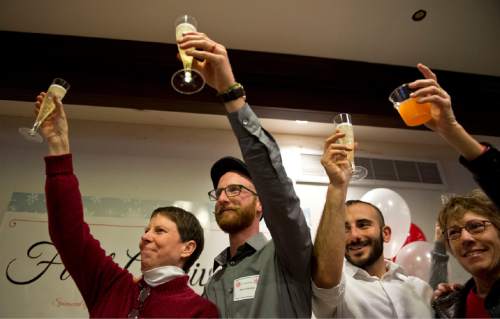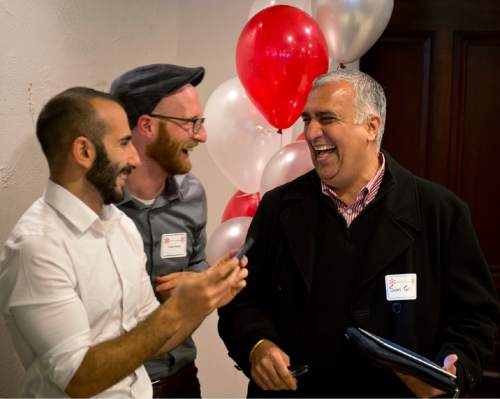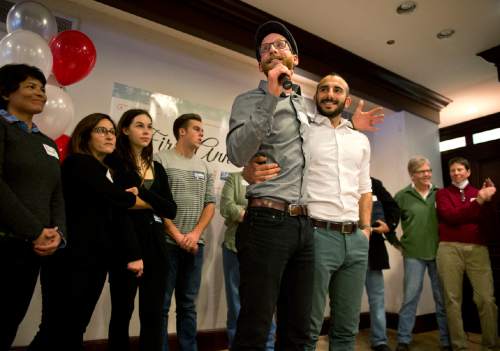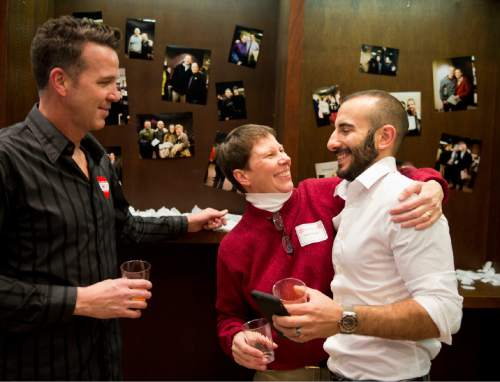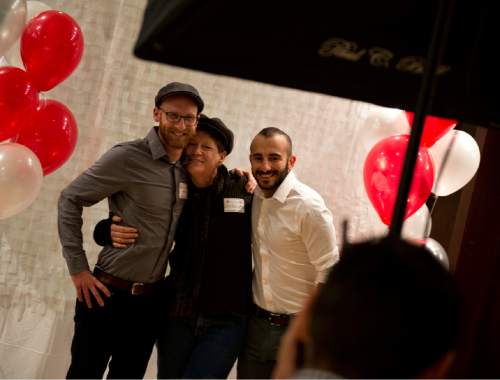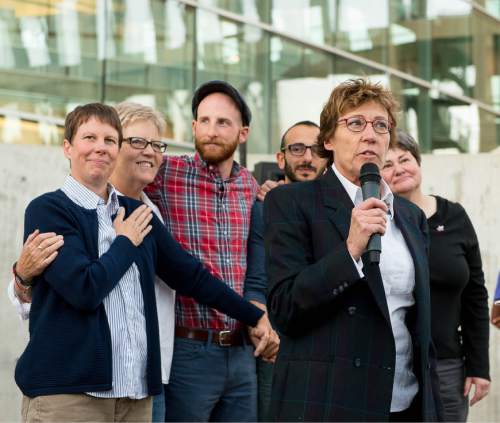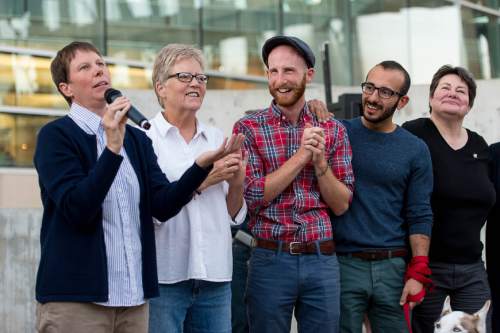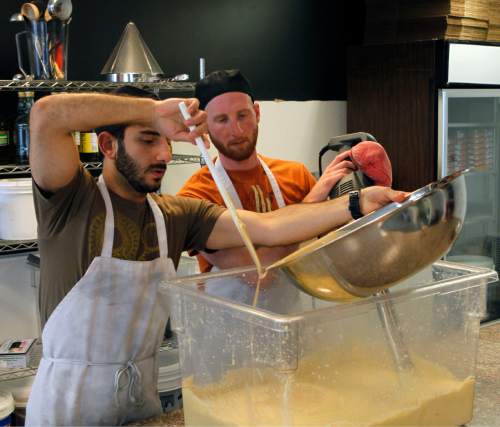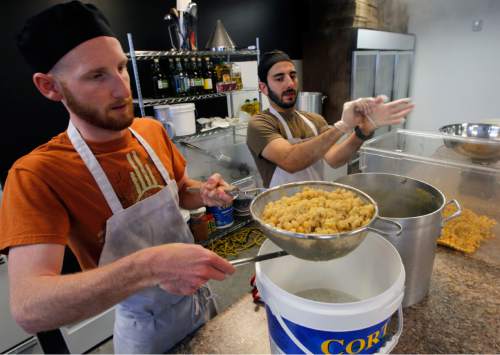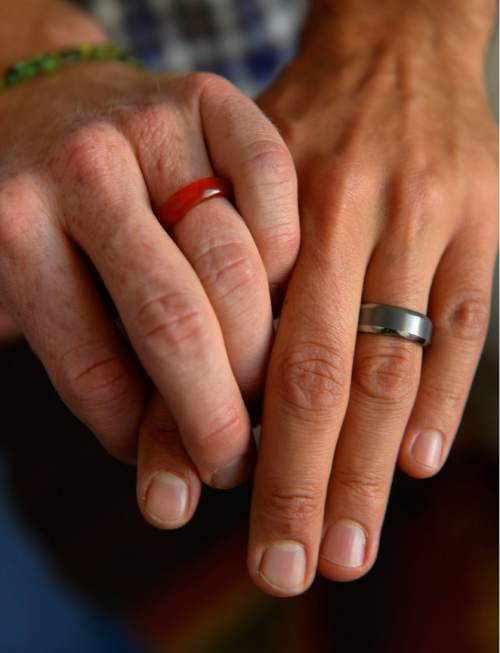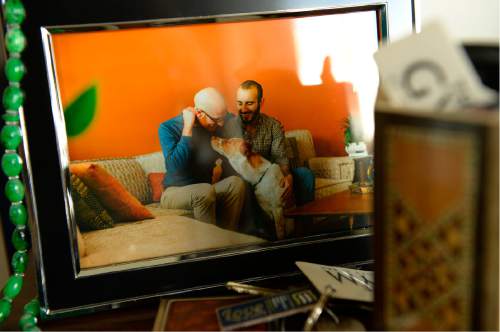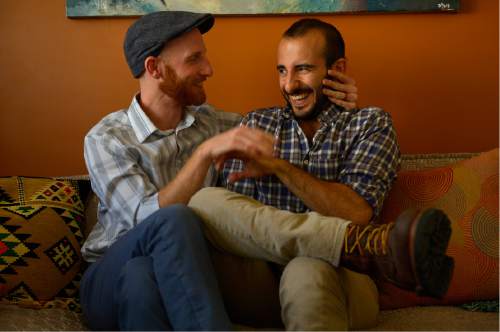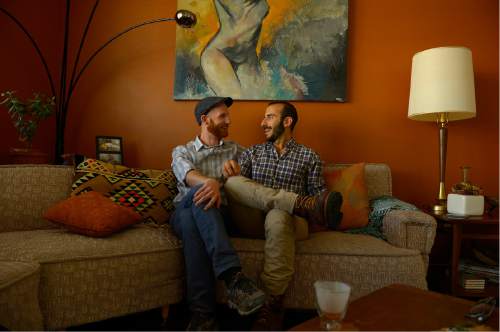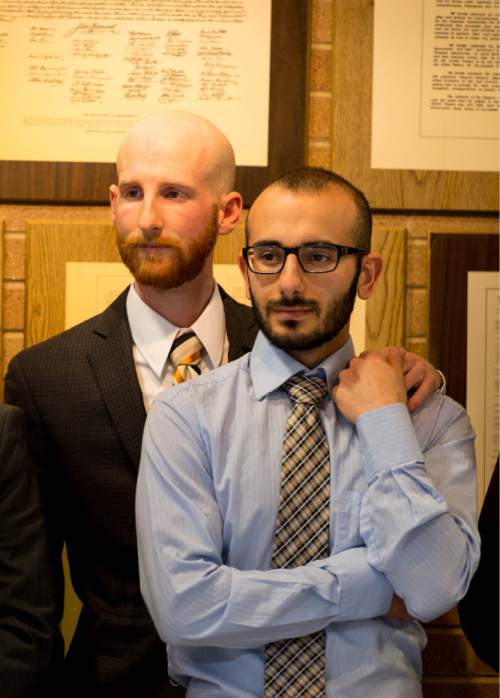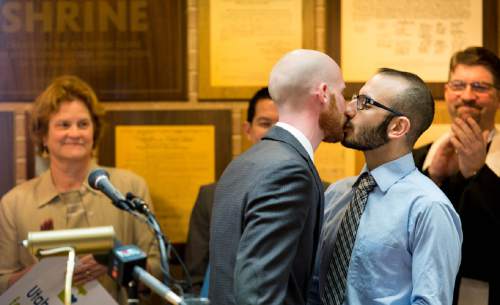This is an archived article that was published on sltrib.com in 2014, and information in the article may be outdated. It is provided only for personal research purposes and may not be reprinted.
Moudi Sbeity knows what to say when someone recognizes him in a grocery store and compliments the hummus and other Middle Eastern delights he makes and sells with Derek Kitchen under the "Laziz" label.
"We say, 'Thank you. We put a lot of craft into our business,' " said Sbeity, who came to Utah from Lebanon in 2006 and studied at Utah State University.
But he's stumped when the recognition and thanks come for helping to bring marriage equality to Utah.
"My immediate response is, 'Oh, well, thank you' … but what do I say next?" Sbeity said. "It took so many more people than us."
Even so, his partner's name forever will be referenced to the landmark Kitchen v. Herbert case.
"We didn't realize that our case would impact the entire conversation as much as it did," said Kitchen, who grew up in South Jordan. "We just knew that when we filed originally, that was us saying, 'We're doing something that may not change anything, but we're making a stand.' "
The couple have been together since 2009. They share a home and a business, and formalized their relationship through Salt Lake City's mutual-commitment registry. But they want marriage.
Despite that desire, the two 26-year-olds didn't dart to a county clerk's office to wed Dec. 20, 2013, when a federal judge toppled Utah's ban on same-sex marriage.
Instead, they sat together in their west Salt Lake City home and watched news reports about couples scurrying to the altar.
"We did think we would win, but we never thought marriages would begin right away, that was never in our imagination," said Kitchen, adding that he felt detached from the "Kitchen" referenced repeatedly in stories. "It seemed almost too real."
They also didn't want to rush the day they had dreamed of for so long. That included marrying on the sixth anniversary of their first date, Oct. 10. By then, the couple believed their case would have worked its way through the U.S. Supreme Court; a summer 2015 ruling would have left ample time to plan a fall wedding.
But on Oct. 6, four days before their fifth anniversary, the high court decided not to hear any appeals or the issue, legalizing gay marriage in Utah and 10 other states. It also left Kitchen and Sbeity with a choice: Marry in four days or wait another year.
"We we were like, we can't wait a year," Kitchen said. But four days was too soon.
The two now plan to marry May 24, 2015, in a public ceremony at the Gallivan Center — just before the start of the busy farmers market season.
Planning the event has left both men reflecting on the meaning of marriage and why they felt so compelled to take up the fight.
Kitchen looks to his grandparents as his "marriage role models." Married more than 50 years, the elder couple provide an example of a lifelong relationship built on acceptance, caring, respect and the willingness to "stick it out" in good times and bad.
"The day I met Moudi," he said, "I knew he had the potential to be that person for me."
In his youth, Sbeity said he was determined to stay single partly because his parents had divorced and because he wanted to buck societal expectations. But the down-to-earth, kind and calm Kitchen drew him in and changed his point of view.
"He makes me feel so happy," Sbeity said.
Kitchen and Sbeity have chronicled their legal battle in journals, preserving the experience for themselves and the children they hope to raise. In particular, Sbeity has written letters to his future child.
"We want them to understand that sometimes you have to step out of your comfort zone to make a difference or impact change," Kitchen said. "By the time they are adolescents or adults, they will know that marriage is a given for gay people. We want to remind them that hasn't always been that way."


